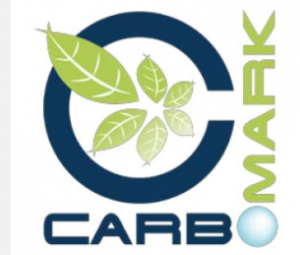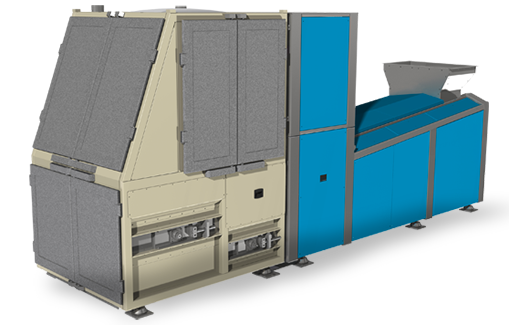
WHAT IS CARBOMARK
Carbomark is a pilot initiative setting up a voluntary carbon market whose peculiarity is a local scale implementation, which means real geographical proximity between sellers and buyers of carbon shares.
This initiative is the result of the cooperation among Veneto’s and Friuli Venezia Giulia’s Regional Governments, the University of Padova and the University of Udine.
The Forests and Parks Project Unit of Veneto’s regional public administration promoted and coordinated this pilot initiative that met the interest and positive reaction of Friuli Venezia Giulia’s Central Direction for Rural, Food-farming and Forest Resources. Both regions promoted and implemented the market. The Department of Territory and Agriculture and Forest System of the University of Padova together with the Department of Agriculture and Environment of the University of Udine contributed with their scientific and methodological knowledge base.
A number of both public and private subjects that participate in the market either as carbon credit “buyers” or as “sellers” make the market work properly.
Presently, ruled market systems operate worldwide and promote emission-offsetting mechanisms producing global effects. However, they do not stimulate closeness between greenhouse gas (GHG) emitters and offsetting initiatives.
For this reason, operating locally facilitates the achievement of environmental benefits in the same areas where GHG are emitted.
Carbomark works both in Veneto and in Friuli Venezia Giulia regions and the environmental benefits it produces will remain in the same regions, since the offsetting initiatives this market finances are all located there.
The physical proximity of all subjects of the market contributes significantly to give the mechanism for trading carbon shares more visibility and reliability as well as it arouses both market operators’ and citizens’ appreciation.
Carbomark favours the following:
* GHG mitigation, by encouraging carbon sinking at the local scale;
* Income generation in less favoured areas, by estimating the value of the carbon sinking service that forest ecosystems provide;
* The adoption of offsetting strategies in local administrations;
* The implementation of measures to reduce and mitigate emitters’ environmental impact.
HOW CARBOMARK WORKS
Carbomark is a real market that trades carbon “credits”.
At each transaction, someone buys carbon credits and this purchase will support someone else’s engagement to reduce GHG, such as carbon dioxide, in the atmosphere.
There are both ruled markets and markets operating on a voluntary basis. The European Union Greenhouse Gas Emission Trading Scheme – EU ETS represents the most relevant example of a ruled market trading emission allowances worldwide.
It bases on the “cap and trade” principle, which means that a cap – the maximum amount of emissions possible – is first settled; then companies can trade their emission allowances without exceeding that cap. While ruled markets bind “big emitters” only, voluntary markets can also involve small and medium emitters and they therefore favour additional CO2 emission saving compared to the engagements established by international agreements.
Voluntary markets allow higher flexibility in developing mitigation actions and projects that can also involve other mechanisms controlling GHG concentration, such as the use of power generated by hydroelectric or wind plants, methane reclaim at garbage dumps, reforestation plans.
Carbomark is a voluntary market characterized by the “local” scale. It responds to the following challenges:
* To develop mitigation projects offering long-lasting and reliable carbon credits;
* To contribute to emission reduction at the local scale.
This market rules are rather basic, although hard scientific and organization work was needed to ensure that the market mechanism and its managing tools could be reliable.
Traded credits regard the support to forestry activities to reduce carbon dioxide concentration, by promoting the implementation of sustainable forest management, urban forestry and wood products projects, beside the use of biochar, which is still experimental. These credits, which have been carefully assessed, are real, measurable, and long-lasting, therefore they can be sold. They are local credits based in Veneto and Friuli Venezia Giulia and they promote real social and environmental benefits. Local communities and emitters, which invest in this market because of the geographical proximity of both sink and emission sites, can thus recognize and appreciate these benefits.
The market is a platform where these carbon credits are traded. Both public and private subjects can sell their credits while other subjects – small and medium enterprises, service companies, utility companies – can buy them to offset their emissions. The former represent the offer, while the latter are the demand: these are the market players. Carbomark also provides for all appropriate transaction tools – including protocols for the implementation of carbon stocking projects, sale contracts, and tools to participate in the market.
Demand and offer are matched by the Kyoto Observatories – one for each region – which play a role in the market organization and promotion. In Carbomark, share prices follow the market and the trends of international stock exchanges trading carbon credits.
Manufacturers playing the role of “emitters”, just because of their power consumption, can reduce their environmental impact, by promoting CO2 sink and carbon stocking, thus offsetting their emissions and favouring climate “mitigation” actions. Companies deciding on participating in Carbomark market on voluntary basis undertake to assess their emissions and commit themselves to reduce their emissions in the mid-term (five years).
Company’s emission assessment bases on carbon footprint principles, which determines the CO2 quantity emitted for a product, process or service yearly. The evaluation refers to UNI EN ISO 14064-1, 2, 3 international standard. Carbomark market therefore gives a company the opportunity to offset part of its emissions, by buying carbon credits.
The commitments undertaken by the companies to participate in the market, as well as their willingness to contribute to mitigate the environmental impact of their production processes can be shown and proved through the use of Carbomark logo. This logo represents a positive environmental and territorial marketing initiative and conveys a message for environmental awareness to the public, which can be recognized easily.
CARBOMARK – IMPROVEMENT OF POLICIES TOWARD LOCAL VOLUNTARY CARBON MARKETS FOR CLIMATE CHANGE MITIGATION – LIFE07 ENV/IT/000388
http://www.carbomark.org/


